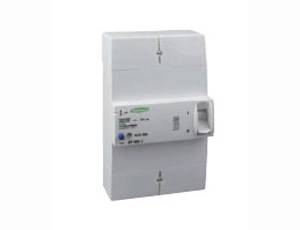While designing the Standard Transfer Specification (STS) prepayment system almost thirty years ago, I did not envisage the worldwide acceptance of the standard, its adoption as an IEC specification and the rollout of over 100 million compliant meters that are manufactured in several countries across the world.
The STS details the transfer of credit and engineering information from compliant vending and management systems to compliant meters. The specification covers the formatting of information to be transferred into 20-digit tokens that are manually entered via a keypad into the meter or, on newer systems, loaded automatically via a telemetry system. Schneider 3p 160a Mccb

To prevent token replay, included with the information that is encoded into the 20-digit token is a token identifier (TID). The TIDs are stored within the meter and before the information embedded within the token is processed, the meter ensures that the token identifier has not been “seen” before.
The TID is a number that represents the number of elapsed minutes since 1st January 1993 at the time the 20-digit token is generated. The amount of “space” allocated to the token identifier in the 20-digit token has placed an upper limit on the number of minutes that may be represented. This upper limit equates to approximately 32 years. The 32-year limit has given rise to the need for a rollover key change that will reset the start date for the TID calculation while preventing the reuse of previously purchased tokens.
Have you read? The difference between base date and key revision number
The fundamental question is: “Why was an elapsed minute counter used that put a lifetime limit on the TID?” The answer to this is simple, when the system was designed in the early 1990s, most of the points of sale were offline. This created the requirement for a common method to generate the TID across disconnected points-of-sale that ensured duplicate TIDs were not issued when purchasing prepaid tokens at different sites.
Thirty years later and the majority, if not all, prepaid token sales are performed via online systems. Be these cashier terminals at stores, bank websites or smartphone applications. This implies that a time-based TID is no longer a requirement. In short, if the offline vending requirement is removed, the requirement for a TID Rollover Key Change falls away.
Have you read? STS Association commits to evolving with latest metering advancements
Each of these options will have an associated cost. Option one will have high customer support costs with respect to key change token entry and the voiding of previously unused tokens.
All prepaid tokens are currently generated via security modules that vendors have installed at their data centres. The solution involved the development of a virtual security module that replaces the currently installed security modules. The virtual security module centrally manages the TIDs and removes the need for a rollover key change. The interface to the virtual security module is via a secure interface that delivers the same functionality as the existing security module.
The methodology to secure the transfer of a supply authority’s vending key from the key management centre to the new virtual security module needs to be agreed upon and implemented.
Have you read? STS compliant prepaid meters TID Rollover, three years to go
The virtual security module proposed above already exists. With respect to security, the virtual security module uses nCipher HSMs that are Federal Information Processing Standards (FIPS) 140-2 Level 2 validated. The interface to the virtual security module is via a Restful API web service and the following functionality is provided:
The risk associated with implementing this solution is incredibly low as the supply authority can always revert to the current installed base of security modules and still implement a TID Rollover Key Change plan if required. The upside to implementing this solution is extensive cost savings and fewer customer support issues.
About the author: Stephen Leigh is the Director at Automated Utility Systems (Pty) Ltd. Stephen also wrote the Standard Transfer Specification (STS) for prepayment metering and co-authored several national specifications with respect to common vending systems and prepayment meter interfaces.

AC Contactor © All content copyright 2017 - 2023 VUKA Group, unless specified otherwise.